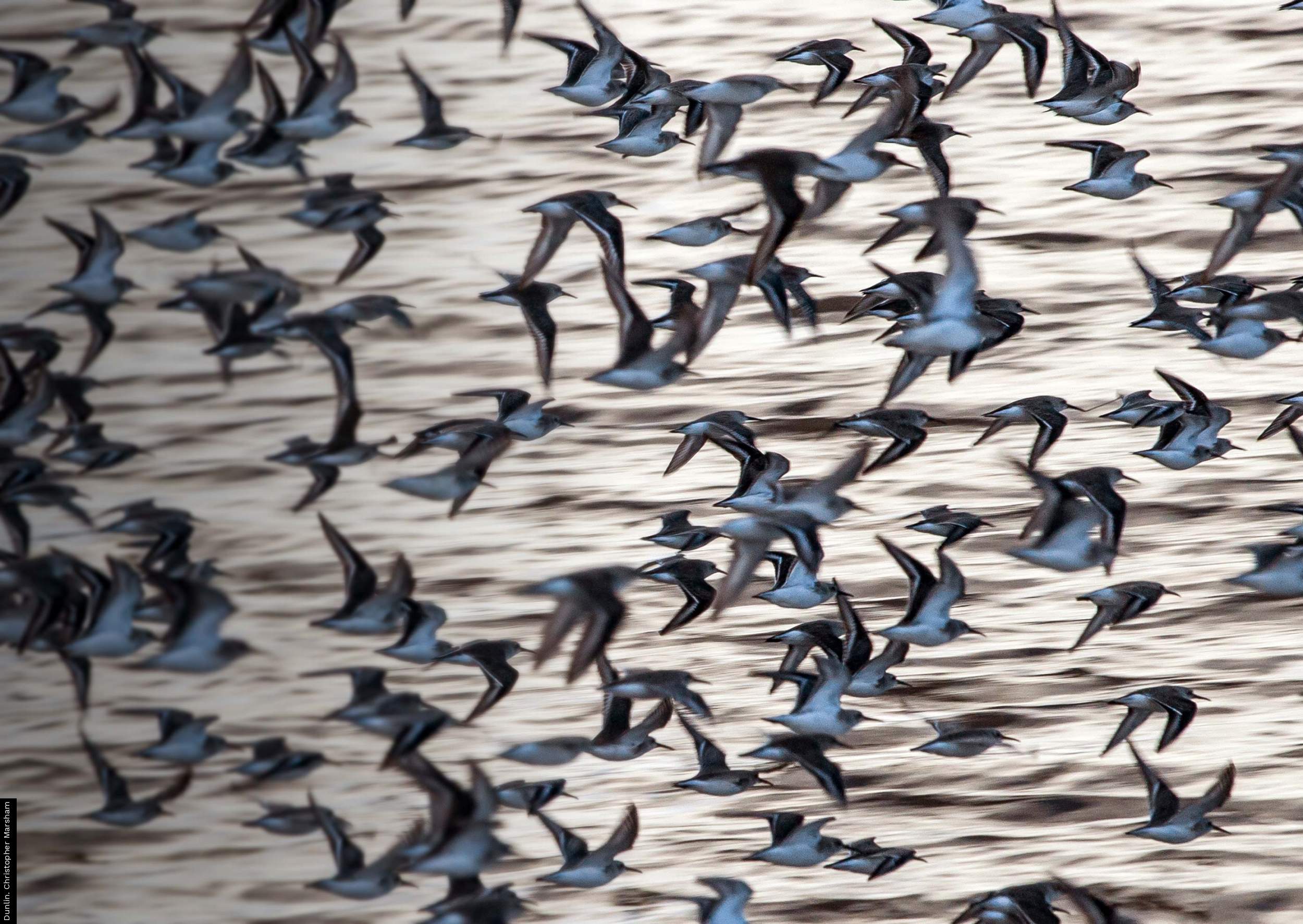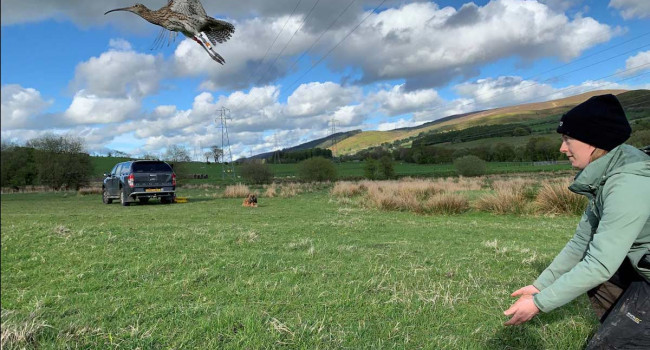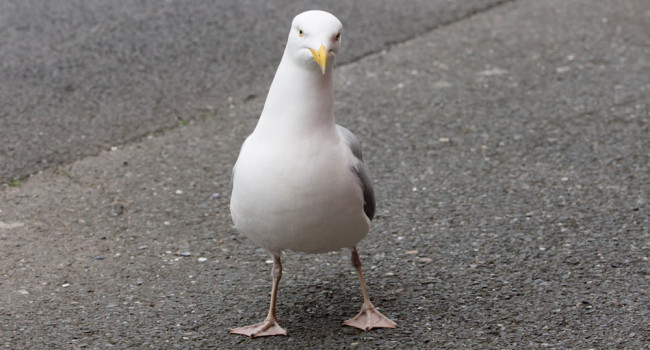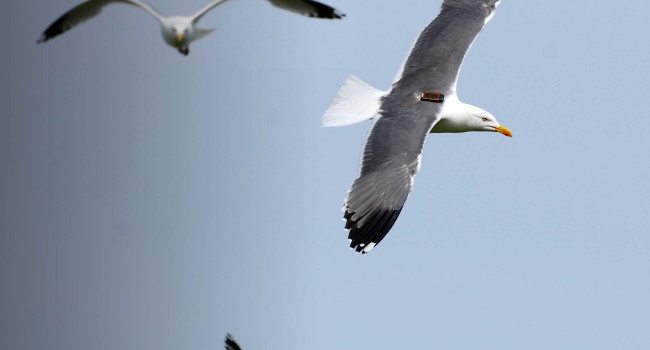Dedicated volunteers count birds for two decades
01 Mar 2014 | No. 2014-17
Over 150 people have recorded the birds on their own patch of countryside for twenty years in the name of science. These birdwatchers were among the first to volunteer for the Breeding Bird Survey in 1994, and are still surveying their sites as this long-running scheme reaches its 20th birthday.
Counts from the Breeding Bird Survey (BBS) are used to produce population trends for over 100 UK birds, and these figures feed in to research and conservation work. This has included monitoring the success of agri-environment schemes, unpicking the causes of declines in our summer migrants, and investigating the effects of introduced species and climate change on bird numbers.
More than 2,500 people now participate in the survey, making two visits a year to randomly-selected sites. Over the last twenty years BBS volunteers have made over 100,000 survey visits and walked a distance equivalent to ten times round the earth, binoculars in hand, recording over 16 million individual birds along the way.
The results from BBS sites that have been surveyed by the same person over many years are particularly valuable, and on the 20th birthday of the survey we are thanking and celebrating our most committed BBS volunteers, who have each been given a specially-designed BBS pin badge as a memento.
Here’s what some of them have to say about their twenty years:
I believe the data makes a very valuable contribution to the wider picture of the state of our wild bird populations, and there is no small satisfaction making the effort for this. Nick Tardivel
The achievement of reaching remote squares, after a seemingly vertical climb, with the reward of panoramic views of the Cheviots, singing Skylarks, ‘pipping’ pipits, calling Curlews, and Snipe drumming is all the incentive needed to keep going, year after year, to this beautiful part of Northumberland. Muriel Cadwallender
It’s great fun, it is always good to be out birding and recording birds; you never know what you will find - on one occasion I found the island’s first Lesser Whitethroat just after I finished the count. David Jardine
I appreciate the value of persisting with an average square of farmland, to enable the gathering of data to show just how badly our farmland birds are doing. Louise Bacon
The opportunity to take part in a bird survey in beautiful surroundings, being ‘up with the lark’ as the day wakens is great reward. So much so that I have taken on four more squares since! Andrew King
I am pleased to be a small part of an important conservation tool which makes doing the survey worthwhile. Heather Coats
2014 marks my 20th year of surveys. It is now part of my early summer; I love the excuse (and of course the prompt) to be up early and taking in the route and, like old friends, the birds I can expect to find along the way. Paul Copestake
Each visit I add a few more pieces to the ever changing pattern of bird trends both here on my patch and also in the wider countryside. Vic Fairbrother
BBS National Organiser Kate Risely says: "The BBS dataset is a powerful and sensitive instrument for monitoring changes in bird populations, and we owe this entirely to the astounding dedication of our bird survey volunteers. It is a pleasure and an inspiration to work with them."
We are always looking for new BBS volunteers – perhaps some people starting this year will still be surveying their sites 20 years from now! We urge all birdwatchers who want to get involved to visit www.bto.org/bbs, email bbs [at] bto.org or call the BTO on 01842 750050.
Notes for Editors
- More information, and stories by long-standing volunteers, can be found at www.bto.org/bbs
- The BTO/JNCC/RSPB Breeding Bird Survey is a national project aimed at keeping track of changes in the breeding populations of widespread bird species in the UK. The BBS involves around 2,500 participants who survey more than 3,500 sites across the UK, enabling us to monitor the population changes of over 100 bird species. Knowing to what extent bird populations are increasing or decreasing is fundamental to bird conservation.
- The Breeding Bird Survey is run by the British Trust for Ornithology (BTO) and is jointly funded by BTO, the Joint Nature Conservation Committee (JNCC) (on behalf of the statutory nature conservation bodies: Natural England, Natural Resources Wales and Scottish Natural Heritage and the Department of the Environment Northern Ireland), and the Royal Society for the Protection of Birds (RSPB).
- This important survey is carried out by volunteer birdwatchers throughout the UK, who receive no financial reward or expenses for their efforts. We are indebted to them for their tremendous support.
- Volunteers make two early-morning spring visits to a local, randomly-selected 1-km square, to count all the birds seen or heard while walking two 1-km lines across the square.
- The BTO is the UK's leading bird research charity. A growing membership and up to 60,000 volunteer birdwatchers contribute to the BTO's surveys, collecting information that underpins conservation action in the UK. The BTO maintains a staff of 100 at its offices in Thetford, Stirling, Bangor (Wales) and Bangor (Northern Ireland), who analyse and publicise the results of surveys and projects. The BTO's work is funded by BTO supporters, government, trusts, industry and conservation organisations. www.bto.org
Contact Details
Kate Risely
(BBS National Organiser)
Office: 01842 750050
(9am to 5.30pm)
Email: kate.risely [at] bto.org
Paul Stancliffe
(BTO Media Manager)
Office: 01842 750050
(9am to 5.30pm)
Mobile: 07585 440910 (anytime)
Email: press [at] bto.org
Images are available for use alongside this News Release.
Please contact images [at] bto.org quoting reference 2014-17
The BTO has an ISDN line available for radio interviews.
Please contact us to book an interview Office: 01842 750050






Share this page